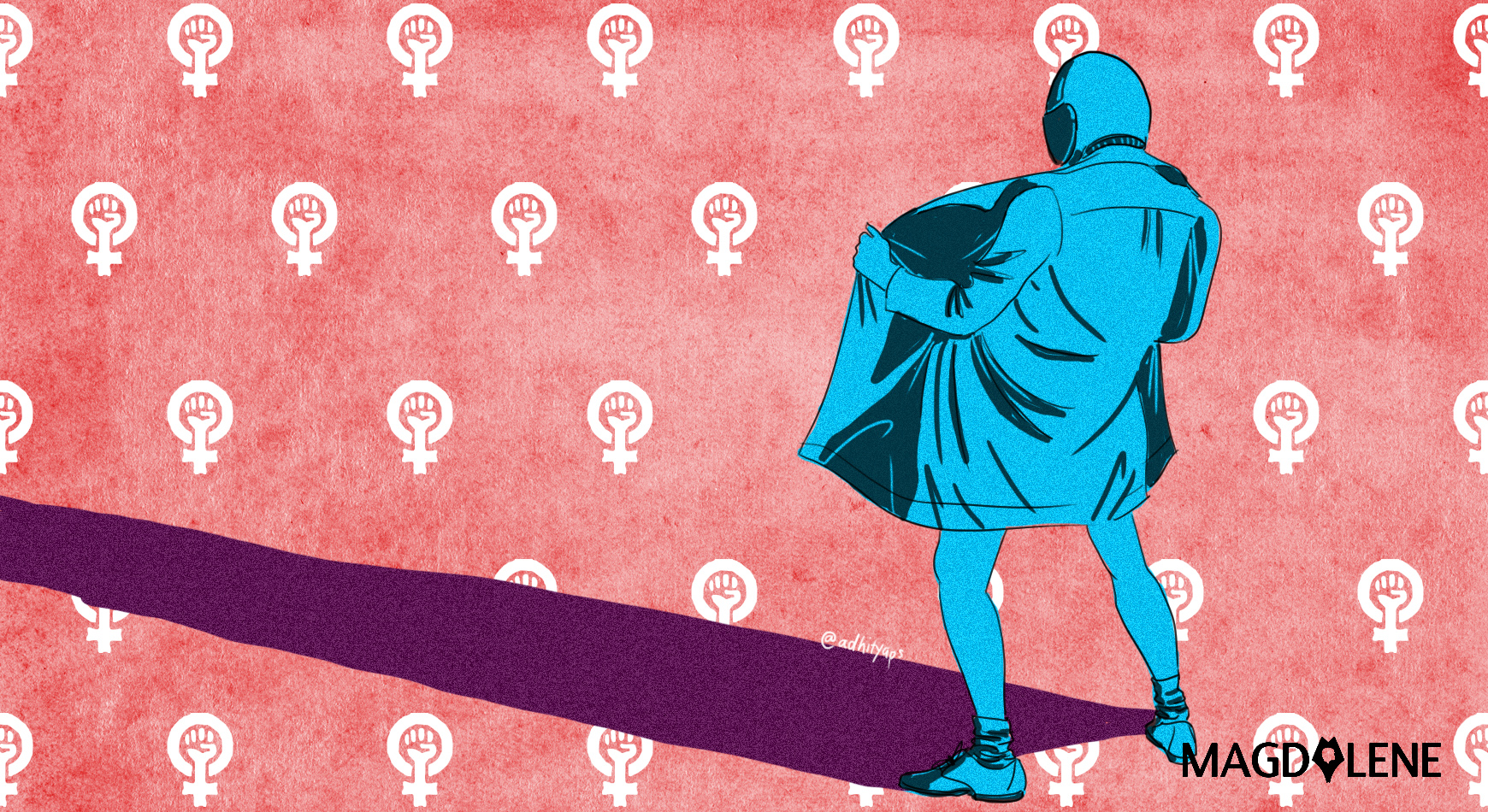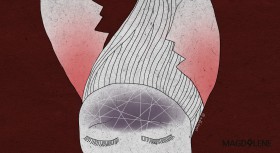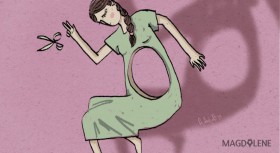Earlier this year, I was walking down a poorly paved road in Pekalongan, Central Java, in a pink t-shirt and a pair of high-waisted jeans, which had once belonged to my mother. I wasn't carrying anything except for my phone, and at six in the morning, the sun was just beginning to stretch into the sky.
There weren't many people out, but on the main street leading to my aunt's house were some men, young, old, some smiling, some not. One was resting on his motorcycle. I kept my eyes glued to the sidewalk, shoulders hunched, an evil scowl on my face to deter creeps.
I was only about 100 meters away from my aunt's house when, suddenly, the man who had been leaning on his motorcycle drove up and parked a few meters away in front of me. To my horror, he ambled onto the sidewalk and slid off his pants: "Enak lho, dek. Cobain aja" (It tastes good, Sis. You should try it). From the corner of my eyes I saw that he grabbed his dick and dangled it around. As the taste of vomit crept into my throat, I saw his free hand reaching out towards me, so I started running until I reached my aunt’s house.
In the days and months since it happened, my mind would return to the event. Always I came back to the same question: Was it my fault? I was convinced that it was. While thinking of what could have happened, I even felt relief. If I had defended myself and hit that man on the street, I could have been blamed for making a fuss. Unconsciously, I was reinforcing the idea that a man’s gaze took priority over my safety.
When removed from the context, the message seems ridiculous: “If someone attacks you, don’t fight. Just let them take away your autonomy. Don’t cause trouble.” Yet every time we remain silent and refuse to address the actions of predators, that is the message we emphasize: that the safety of a human being is less important than keeping the peace.
Each person has personal boundaries. But whereas men are encouraged to defend those boundaries, and praised for being strong, women are expected to silently accept violation, and are blamed when they fight back. That is not right.
After hours of thinking and reading online articles, I finally came to the conclusion that what happened was not my fault. No one asks to be raped or molested. Not a single person wants their boundaries to be violated. And even if I did fight back against that man, I wouldn’t have been wrong because he was trying to take away my free will and I was only protecting my boundaries.
This realization opened my eyes and gave me the freedom to be myself. I became more and more okay with knowing my boundaries and protecting them. When someone chastised me for “causing trouble,” I recognized the silent message of “you don’t deserve protection” and rejected it. I will never again apologize for defending or being myself.
One day, I will be the mother of a young girl. I will teach her that first, just like she is responsible for the choices she makes, others are responsible for their own. Though she may feel tempted or instigated by another person, the choice to act will always remain in her hands. This is a lesson many sexual predators do not understand.
Second, I will explain to her that there are some messed up people in the world who may try to hurt her and that she lives in a system that won’t care enough about her. The shortcomings of these people and this system are not her fault.
Third, I will show her the statistics which say that only 35% of sexual assault cases are reported to authorities and teach her to protect herself and to carry a weapon. If she needs to shout or call for help, she will know to do so.
Fourth, she will understand that as she grows older, people will continually try to silence and pin blame on her, and that the more successful and happy she is the worse those people will get. She will know to turn up the volume and roar even louder.
And finally: though my daughter may be born into a world full of hatred and into a system which rarely insists that predators account for their actions, she will never believe the lie. As a woman, one of the most precious weapons she will have is her voice. I will teach her how to use it, even if she is cursed for it.
In the end, if there is only one lesson she remembers from me, it will be that within her body is a goddess who does not tolerate disrespect. She deserves the bravery to know herself, be herself, and defend herself, although she may be criticized or ridiculed for it.
Theodora Sarah Abigail likes to be called Ebi and enjoys cooking, reading, and sleeping. She talks a lot and runs a blog.








Comments